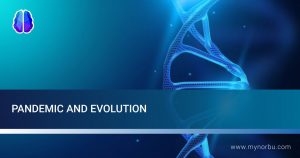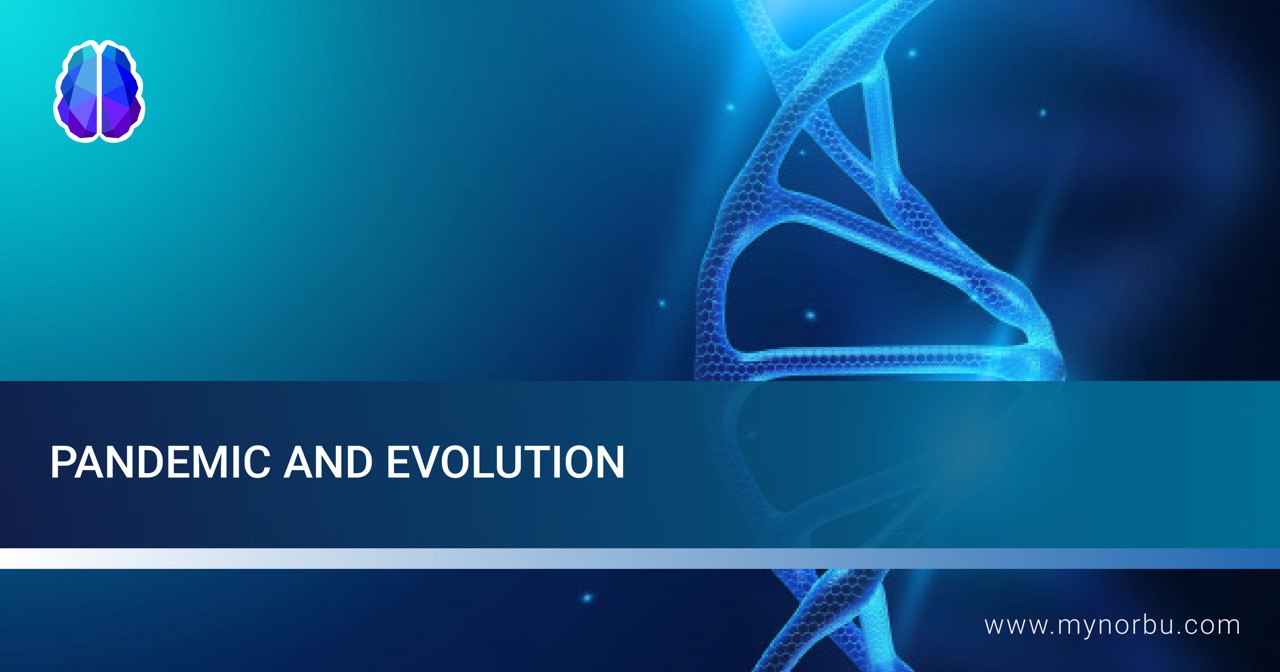Pandemic and Evolution

Our Earth is a unique planet that is still on an evolutionary path, and all its inhabitants are also on the path of evolution. People are now facing a new challenge. Will mankind be able to give an adequate answer, will it change its old traditions, will it give up its usual way of life or will it take a waiting position? The answers to these questions will be found in the near future. Today this challenge affects not only people of one country, nationality or religion, but all humanity, because everyone is facing a new type of threat – coronavirus pandemics – poor, rich, eminent, rulers, politicians and just citizens.
If you try to remember situations, when the whole world was holding its breath while watching the news, the following tragic accidents appear in front of our eyes: the explosion of the twin towers in 2001, the explosion of the oil platform in the Gulf of Mexico in 2010, the accident at the nuclear power plant Fukushima in 2011, the rapid fall of the Chelyabinsk meteorite in 2013. Usually, such events take people by surprise. They demonstrate the fragility and value of life by reminding us that we are all inhabitants of one planet.
Another situation 911 showed that we are not ready for changes in life, for limitations, but if we do not change and evolve, we may find ourselves on the sidelines of life, not only as individuals but also as a species.
Mankind is now in a sense at a stage of evolution that is reminiscent of how once fish were left without water on land and had to learn to breathe air rather than oxygen from water. At that time, the fish were able to get out of the water and began to master the land. To do this, new organs had to be formed – lungs instead of gills, paws instead of fins. We cannot yet understand the entire global plan of evolution for mankind, but we can already draw the first conclusions from the recent event- the coronavirus impact. We all are under stress, not only because of bad news but also because we had to change a lot in our lives and daily routine:
- We had to urgently revise our habits because some of them became death traps not only for us but also for our loved ones. A simple habit of neglecting hygiene rules (washing your hands, not sneezing openly, keeping distance, refrain from touching face and metal surfaces) became an unacceptable whim.
- Someone had to quit smoking or start doing exercises, buy a treadmill, etc.
- It became important to monitor the condition of loved ones on a daily basis, especially elderly people, teaching them new rules and helping them to adapt.
- We had to learn to exist in informational and cultural isolation (closed theatres, unavailable entertainments, isolated friends, etc.).
- We need to live without usually available services such as hairdresser visits, beauty services, etc. and accept ourselves as we are.
- All of us had to restrict movement in space.
- Some are sitting at home with children, assisting in their homeschooling, keeping them busy 24/7.
- Many of us have to cook dishes 3-4 times a day.
- We need to plan our time and activities thoroughly
- Face new fear of breathing without a mask and getting infected.
What conclusion can be drawn from what is happening to us now? We need to be internally prepared for the constant changes that will inevitably continue to happen in our lives. This is a key quality that people, like the new organ, must obtain in the course of evolution. This organ is our brain, which must learn to use its innate quality of neuroplasticity more. Neuroplasticity allows us to adapt quickly, learn and make right decisions.
Norbu’s stress management application is based on developing the quality of neuroplasticity. In the next article, we will consider how stress, adaptation and neuroplasticity are related to each other.
Author: Dmitry Dolgov



